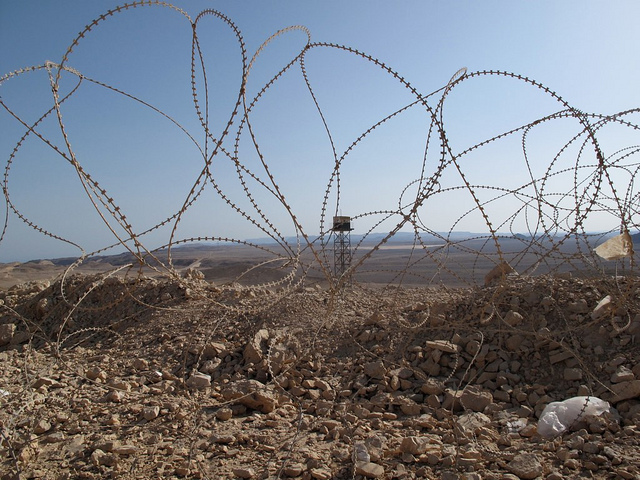
Several years ago, an intellectual in his 60s spoke to me of his ardent stance against normalization with Israel. The only time he encountered Israelis was in the early 1980s when he sat alone at a table in the downtown Cairo café, Groppi. The waiter asked him if two foreigners could sit next to him since all the tables were occupied. As soon as they sat down, they took out their Israeli passports and placed them on the table.
The man told me at the time, "I felt my blood boil, so I asked for the check and left immediately." I was unable to understand the story and was completely taken aback by his position. How could I leave my table because of someone else, and consider that a victory? I tried to explain to him that surely he had other options, however his justification, to which he held fast, was: "I was unable to speak to or hold any kind of discussion with a Zionist."
A similar situation happened when Muslim Brotherhood leader Helmy al-Gazzar was invited to Washington DC to participate in a conference hosted by the Washington Institution for Near East Policy. When Gazzar arrived in Washington DC, he disappeared, failing to show up for his panel. A narrative later emerged after Gazzar’s return to Cairo. Gazzar claimed he had paid for his accommodation, and swiftly left Washington upon learning that Israelis were participating in the conference, despite prior stipulation that he would not participate in any events with Israeli panelists. WINEP countered his claim, saying that the organization paid for his airfare and accommodation, and that no such stipulation had been made.
The same intellectual now writes daily articles attacking the Brotherhood and its policies with which he differs. However ‘Zionist-phobia’ is a common denominator between the two. In fact, this phobia unites all figures from the Egyptian elite regardless of their inclinations, but at the same time they proclaim their support for complete and just peace.
This phobia of a Zionist entity is not limited to prominent political figures, but extends also to young activists who were raised surrounded by these emotionally charged messages. For this reason, similar incidents like the one that occurred with Samira Ibrahim recently will continue to repeat themselves. Ibrahim made headlines when she was to receive a State Department award for courage after accusing the military for performing invasive ‘virginity tests’ on her and her fellow female protesters. The headlines, however, focused on a series of tweets she had posted, one of which welcomed a terrorist attack on Israelis in Bulgaria. Cursing Israel and Jews and demanding Jihad are staples of a prevailing emotional Egyptian political discourse. When a young activist is nominated for an award from the West, the press discovers these anti-Israeli declarations and a cycle of evidence and denials begins. Contradictions emerge between what the activists say locally and what they say abroad.
This confusion and opacity surrounding the Egyptian political elites’ stances and the inability to distinguish between political normalization and folly turns dealing with Israeli policies into a fight with an ill-defined specter. It is as if refraining from dealing with the outside world and retreating from the presence of the Israeli flag becomes a necessity. This perplexity is the result of the Egyptian political elite’s lack of a clear and firm stance regarding the Palestinian cause and the absence of any real and realistic discussion of this issue. Most prefer to rely on emotional one-upmanship.
When a member of the political elite is faced with a clear-cut question regarding their vision for a lasting solution to the Palestinian plight, they answer as though they think their words are coming directly from the Palestinian people themselves. When you ask which Palestinian people are deciding: those trapped behind the walls of a blockade in Gaza, those living in the West Bank under the sponsorship of the European Union, or those living as refugees in various countries, you will receive nothing more than clichés about reconciliation and Palestinian unity from these political leaders.
While the political one-upmanship continues along with hypocrisy and emotional speeches, official relations and security coordination continue in secret. Likewise, hypocrisy and double standards persist in all things related to the Palestinian issue. Israel, for its part has adapted to this situation, and does not seek normalization or formal relations. Rather, it prefers to continue to play the role of the secret lover, running to hide in the closet when the lights are switched on. Because of all of this, we continue to suffer from disorientation and the inability to even declare a clear position when Israel launches an airstrike on Bashar al-Assad’s forces. We lost the compass long ago and now all we have is a powerful throat enabling us to scream, and play the one-upmanship game ad-nauseum.
Ahmed Naje, a writer and journalist, works as an editor in the literary weekly Akhbar al-Adab.
Photo: Egypt-Israel border (Remmertje)
Image: Egypt%20Israel%20Border.jpg
